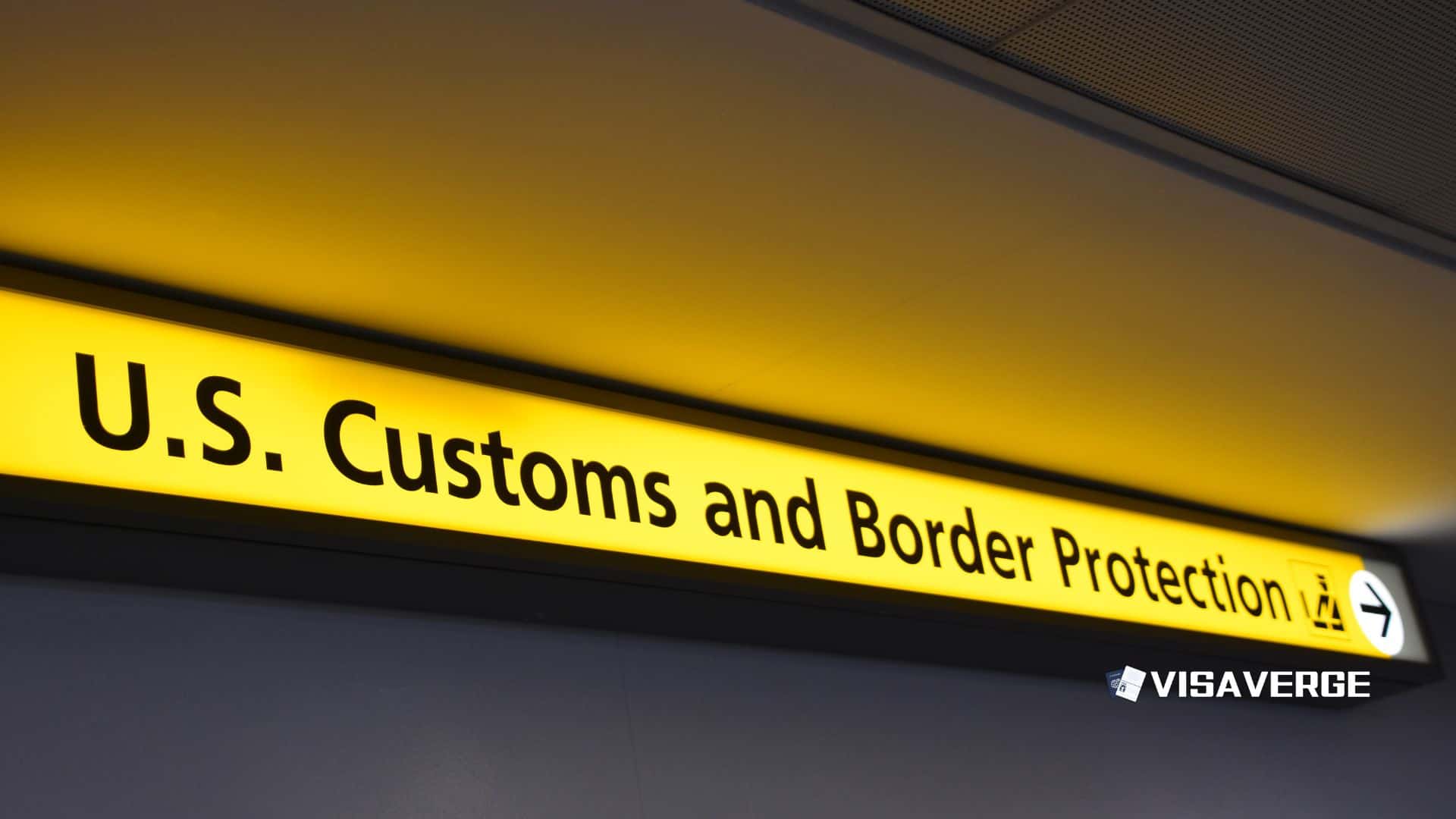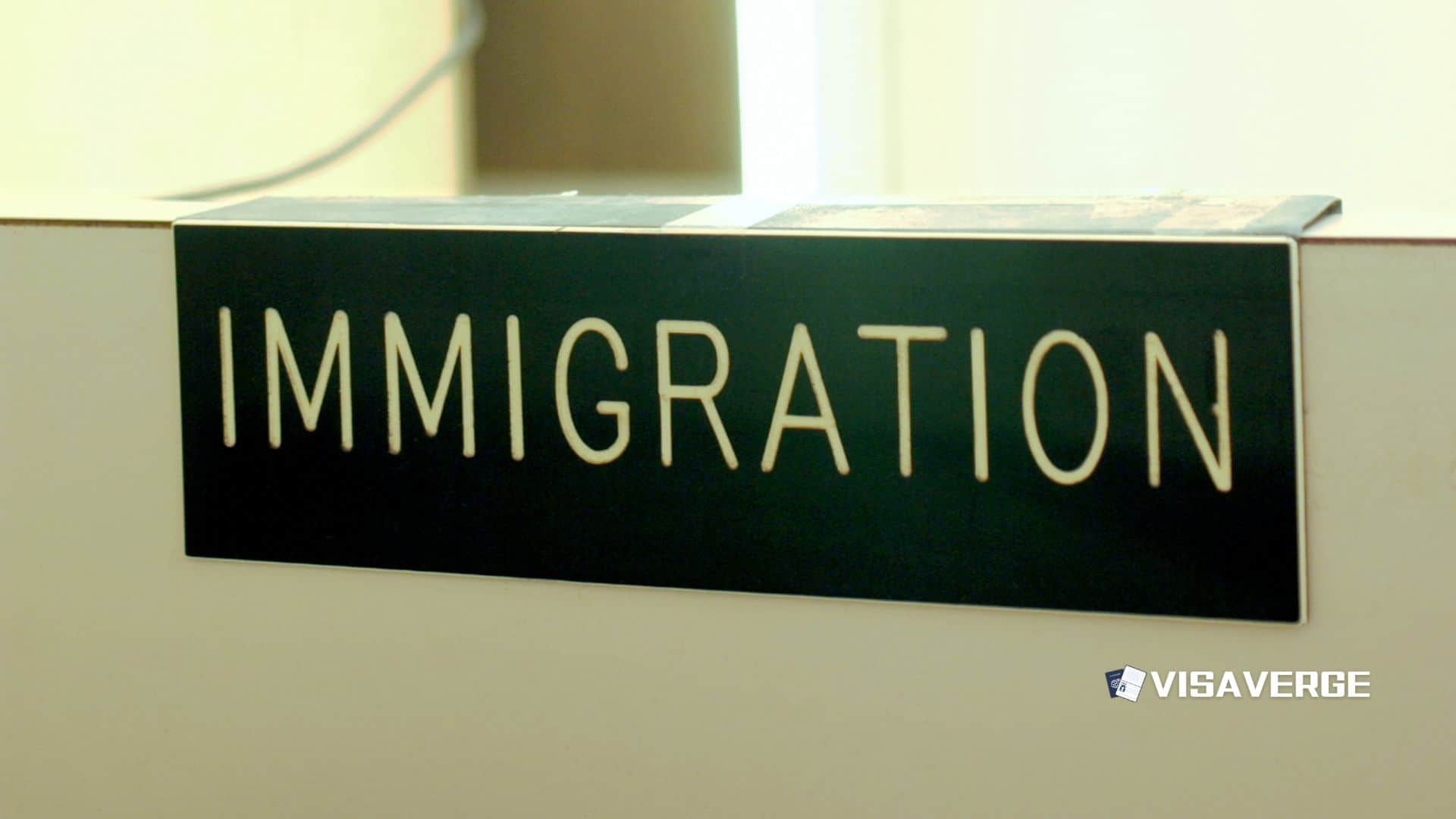Key Takeaways
- Trump administration closes U.S. immigration offices in Latin America, reversing Biden-era efforts to address migration through local legal pathways.
- Closures disrupt pending cases, risk increasing dangerous crossings, and strain host countries’ socio-economic and security systems.
- Policy shift favors stricter deterrence over collaboration, raising concerns about humanitarian impacts and U.S.-Latin America relations.
The Trump administration has begun closing immigration offices across Latin America 🌎 that were set up during the Biden administration. These offices, located in Colombia 🇨🇴, Costa Rica 🇨🇷, Ecuador 🇪🇨, and Guatemala 🇬🇹, were part of an effort to address migration challenges at their source. They aimed to discourage dangerous journeys to the U.S.-Mexico border while providing legal and safer alternatives for potential migrants. According to the Trump administration, shutting these offices aligns with their wider goal of restricting immigration and tightening border control policies.
What Were These Offices For?

The offices that are now being shut down had been established as part of the Biden administration’s strategy to manage migration issues. Their main purpose was to allow people in the region to access accurate immigration information and begin processing certain applications without needing to head directly to the U.S. border. This approach was meant to reduce the use of dangerous and illegal routes for migration. Information about asylum, legal work pathways, and processing centers for some immigration applications were all part of these services.
These locations also aimed to address migration by focusing on the reasons people were moving—such as poverty, violence, and lack of opportunities—and offering solutions in collaboration with local governments. Many advocates praised them as a step toward establishing safer migration networks and reducing risks for families trekking north.
Why Are These Offices Being Shut Down?
The decision to close these centers comes as part of a larger immigration overhaul by the Trump administration since its inauguration on January 20. The closures align with several executive actions designed to quickly undo many of the policies introduced under Biden, particularly those aimed at easing migration pathways.
Officials in the Trump administration argue that these centers might have unintentionally motivated more people to try to migrate, believing the offices encouraged migration by providing a legal route. They believe shutting them down will reduce overall migration numbers and focus on stricter deterrence policies.
The Department of Homeland Security (DHS), which is responsible for executing this decision, has already begun putting staff on administrative leave. These swift actions have left many migrants, including those in the middle of their immigration processes, in limbo.
Immediate Impacts of the Closures
Closing these offices is expected to have significant consequences, both short- and long-term, for individuals and countries across Latin America 🌎. Here are some of the most pressing concerns:
- Increase in Irregular Migration: By removing these centers, potential migrants may have fewer legal avenues to explore and may decide to take dangerous, unauthorized routes. This could lead to an increase in irregular crossings at the U.S.-Mexico border.
-
Pending Cases on Hold: Thousands of individuals had active applications and appointments at these offices. Many of these cases now face delays or complete uncertainty about whether they will proceed.
-
Pressure on Host Countries: The countries that hosted these offices—Colombia 🇨🇴, Costa Rica 🇨🇷, Ecuador 🇪🇨, and Guatemala 🇬🇹—could experience increased strain on their immigration systems. With fewer local options for U.S.-focused migration, people may turn to alternatives within their regions, potentially intensifying local socio-economic challenges.
-
Security Threats: These centers also played a role in gathering intelligence on migration and criminal networks, such as those involved in human smuggling. Their closure could leave gaps in security data collection, which might undermine regional safety efforts.
Parallel Immigration Changes Under Trump
The shutdown of these offices isn’t the only immigration policy change happening under the Trump administration. Several other steps have been taken to restrict migration, especially from Latin America 🌎:
- End of CBP One App: The CBP One app, which allowed migrants to book appointments for legal border entry, has been discontinued. This change leaves fewer channels for migrants to pursue legal entry.
-
Closing Asylum Processing at the Border: Legal pathways for asylum seekers at U.S. entry points are now almost completely inaccessible, forcing them to explore alternative routes.
-
Return of “Remain in Mexico”: The Migrant Protection Protocols, also known as the “Remain in Mexico” policy, have been reinstated. Under this rule, asylum seekers must wait in Mexico 🇲🇽 while their cases are processed in the United States.
-
Cancellation of Humanitarian Parole Programs: These programs, often offered to specific groups facing urgent humanitarian crises (like medical emergencies), have been ended.
Why This Approach Matters
The closure of these immigration hubs signals a major policy pivot away from Biden’s approach of tackling migration through diplomacy and root causes. Instead, Trump’s administration appears to favor control and enforcement. This more restrictive stance could affect U.S. relations with Latin American countries, many of which had collaborated on border and migration strategies under the previous administration.
Some observers argue that this approach could strain diplomatic ties with countries in the region, while others note that cutting off legal options might worsen already dire humanitarian conditions for migrants. According to reports by VisaVerge.com, these policy changes have been met with criticism by advocates, who worry about their impact on vulnerable individuals seeking safety or better opportunities.
Voices of Concern
Immigration advocates and human rights organizations have expressed alarm over these closures. They warn that removing these offices could lead to an increase in perilous journeys, which are often controlled by human traffickers or riddled with threats like extreme weather, dangerous terrain, and violence. They argue that these hubs offered people safer ways to explore their legal options, which may now disappear entirely.
On the other hand, those in favor of the closures support the Trump administration’s belief that these offices encouraged migration. Supporters of this stance see shutting them down as part of a broader deterrent strategy to discourage migration across the board.
Impact on Individuals
For the thousands of people who had cases or scheduled interviews in these offices, the closures could be devastating. Without clear guidance on how pending applications will be managed, many families could lose hope or face mounting uncertainty. For those already amidst the process, waiting times will likely increase without these regional centers facilitating initial steps.
Long-Term Implications
It’s hard to overstate the effect this decision could have, not just in the Americas but on U.S.-Latin America relations. The Biden administration had worked to position these offices as part of a collaborative approach with host nations. By dismantling them, the Trump administration is signaling a return to unilateral action, which could cause tensions in a region heavily impacted by the U.S.’s migration policies.
Beyond policy, these closures could fuel migration crises in neighboring nations. With many families unable to access legal resources within their home countries, the chain reaction could overwhelm systems already overburdened by migration waves.
The Trump administration plans to shift the resources previously allocated to these offices, though specifics on how they’ll be used remain unclear. Experts suggest the funds may be redirected to bolster border security and deportation initiatives instead.
Legal and Advocacy Challenges Ahead
Immigration groups are already preparing to challenge these closures in court. Some argue that international agreements on asylum and refugee protections may be violated. Others are working to provide support to individuals stuck mid-process, though options may be limited given the evolving policy.
Final Thoughts
The Trump administration’s decision to close immigration offices across Latin America 🌎 underscores its commitment to changing U.S. immigration policy. In doing so, it dismantles a system introduced under Biden that aimed to manage migration through collaboration and legal avenues. For now, the impact on migration flows, relationships with Latin American countries, and individuals’ lives remains uncertain, raising more questions than answers.
For official details on U.S. immigration and asylum policies, you can visit the U.S. Citizenship and Immigration Services (USCIS) website for more updates.
Trump shuts down Latin America immigration offices
The Trump administration is closing immigration offices in Colombia, Costa Rica, Ecuador, and Guatemala that were set up by Biden to address migration at its source. The closures, part of a broader immigration shakeup, aim to deter migration and enforce stricter border control policies.
Why it matters: The closures could increase dangerous, unauthorized migration as legal pathways shrink. They also signal a shift from Biden’s collaborative migration strategies to Trump’s enforcement-focused approach.
The big picture:
– These offices helped migrants process applications in their home regions, offering alternatives to hazardous journeys to the U.S.-Mexico border.
– Their closure reflects a rapid dismantling of Biden-era immigration policies, aligning with Trump’s tougher stance.
By the numbers:
– 4: Countries affected by the office closures (Colombia, Costa Rica, Ecuador, Guatemala).
– Thousands: Migrants with pending applications or appointments now in limbo.
State of play: The Department of Homeland Security is executing these closures, placing staff on administrative leave and reallocating resources toward border enforcement.
What they’re saying:
– Immigration advocates warn the closures will force migrants into riskier routes, increasing irregular border crossings.
– Trump officials argue the offices encouraged migration rather than deterring it.
Yes, but: The closures may strain regional relations. Host countries like Colombia and Guatemala could face increased migration pressure, while U.S. intelligence on smuggling and migration patterns may weaken without these hubs.
The bottom line: Trump’s office closures are a stark pivot in U.S. immigration policy, shrinking legal pathways and focusing on deterrence. The ripple effects could reshape migration patterns and strain regional ties.
Learn Today
Migration Challenges: Issues prompting individuals to migrate, such as poverty, violence, or lack of opportunities, particularly in their home countries.
Asylum: Protection granted to individuals fleeing persecution based on race, religion, nationality, political opinion, or social group.
Migrant Protection Protocols (Remain in Mexico): A U.S. policy requiring asylum seekers to wait in Mexico while their cases are processed.
Humanitarian Parole Programs: Immigration initiatives allowing temporary entry into a country for urgent humanitarian reasons, such as medical emergencies.
Irregular Migration: Unauthorized or unregulated movement of individuals across borders, often involving dangerous or illegal methods.
This Article in a Nutshell
The Trump administration’s closure of U.S. immigration offices in Latin America marks a stark policy shift. These centers, once offering safer migration pathways, addressed root causes like poverty and violence. Critics fear increased illegal crossings and strained regional relations. Supporters argue closures deter migration. Legal solutions now face uncertainty, potentially escalating humanitarian challenges.
— By VisaVerge.com
Read more:
• Calculating Piece Rates: Accounting for Personal Time
• Calculating Subminimum Wage Hours for Disabled Employees
• FLSA Compliance: Calculating Hours for Domestic Workers
• Green Bay Police Alert: Latino Community Hit by Costly Immigration Scam
• Impact of US Immigration Policy on Latin America: The Role of Remittances













